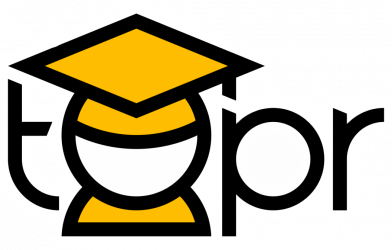Description In today’s complex world, acquiring knowledge and using tools in a single domain is insufficient to remain competitive as individuals. Students must also learn to apply tools and knowledge in new domains and different situations (Grabinger & Dunlap, 1995). In addition, the spread of misinformation is becoming a common concern among education and society …
Continue reading “Utilizing Active Learning Techniques to Promote Application of Knowledge”
Related Tags:
Active Learning,
Authentic Learning,
Content,
Discussions,
Higher Order Thinking,
Metacognition,
Nutrition,
Project-Based Learning,
Reflection,
Rubric,
Transparency,
Video
Description Active learning features a generative component whereby students process the educational material of interest and articulate its relevance within the context of both coursework and their own lives (Fiorella & Meyer, 2015). The effectiveness of active learning may be enhanced through the use of problem-based projects which promote collaboration and higher-order thinking (Grabiner & …
Continue reading “Promote Active Learning in Group Projects Through the Use of the Transparent Assignment Framework”
Related Tags:
Active Learning,
Content,
Discussions,
Problem-Based Learning,
Project-Based Learning,
Transparency,
Voicethread
Description Different from a traditional disposable assignment, a renewable assignment is an assignment where students compile and openly publish so that the assignment outcome is inherently valuable to the community after the class is over (Veletsianos, 2017). Renewable assignments can be scaled to graduate and undergraduate students across disciplines and take various forms. One form …
Continue reading “Foster Meaningful Learning with Renewable Assignments”
Related Tags:
Assessment,
Assignments,
Experiential Learning,
integrative Learning,
OER,
Project-Based Learning
Description Individualizing assignments in an online course promotes student and instructor interest, challenges students to strengthen their research skills, and prevents students from paraphrasing other students’ work and presenting it as their own. This entry describes a strategy used to teach an online course in Urban Sociology, however, this strategy could be applied to many …
Continue reading “Individualize Assignments in an Online Course”
Related Tags:
Assessment,
Assignments,
Project-Based Learning,
Sociology
Description Project-based learning is a method of inquiry-based learning where students are required to develop an end product using their knowledge of a specific topic. In most cases, the product is directly applicable or usable in the real world. Larmer and Mergendoller (2010) cite seven requisites that a good project-based learning experience must have: 1) …
Continue reading “Support Project-Based Learning Through Flipboard”
Related Tags:
Discussions,
Flipboard,
Interaction,
Mobile,
Project-Based Learning
Description Problem-Based learning Problem-Based Learning is an instructional strategy in which students learn the subject matter of a course and the related skills by solving real-world problems and reflecting on their experiences of solving the problem/s. In Problem-Based Learning, students may be given a specific course-related problem to solve or they may be provided with …
Continue reading “Use Problem-Based Learning to Develop Students’ Course Related Skills”
Related Tags:
Anchored Instruction,
Authentic Assessment,
Constructivism,
Interaction,
Problem-Based Learning,
Project-Based Learning,
Situated Cognition
Description Problem-based learning is an instructional strategy in which students learn the subject matter of a course and the related skills by solving real-world problems and reflecting on their experiences of solving the problem/s. The types of problems presented to students in problem-based learning can range from simple to complex. For students new to problem-based …
Continue reading “Implement Problem-Based Learning”
Related Tags:
Anchored Instruction,
Constructivism,
Content,
Problem-Based Learning,
Project-Based Learning,
Situated Cognition
Description Anchored instruction is the process of presenting instruction in the context of an authentic environment with problems or issues which learners must resolve. The problems or issues which are presented to learners in the authentic environment are “anchors” which link learning of content and skills to authentic tasks and activities in which the learning …
Continue reading “Anchor Instruction”
Related Tags:
Anchored Instruction,
Authentic Assessment,
Authentic Learning,
Content,
Problem-Based Learning,
Project-Based Learning,
Situated Cognition

